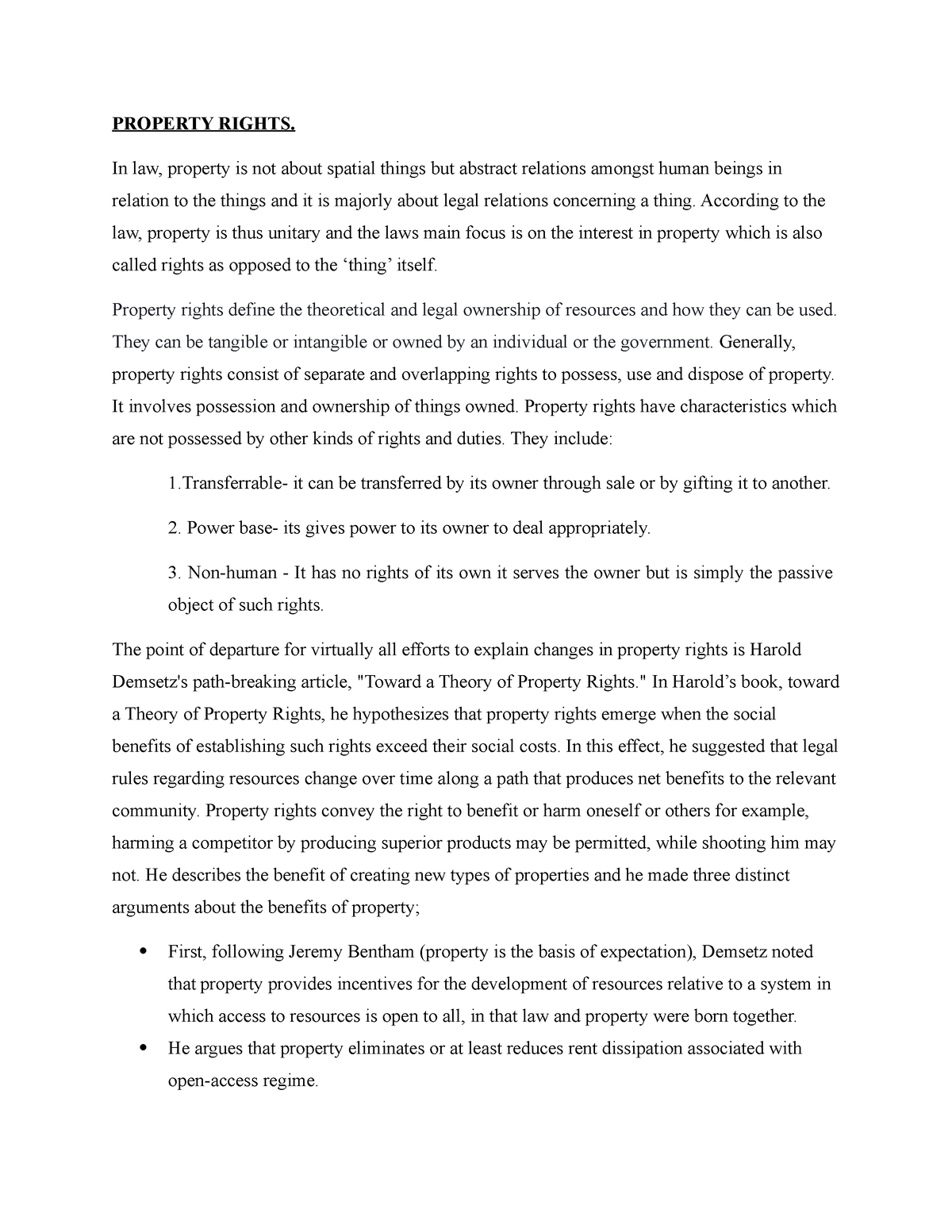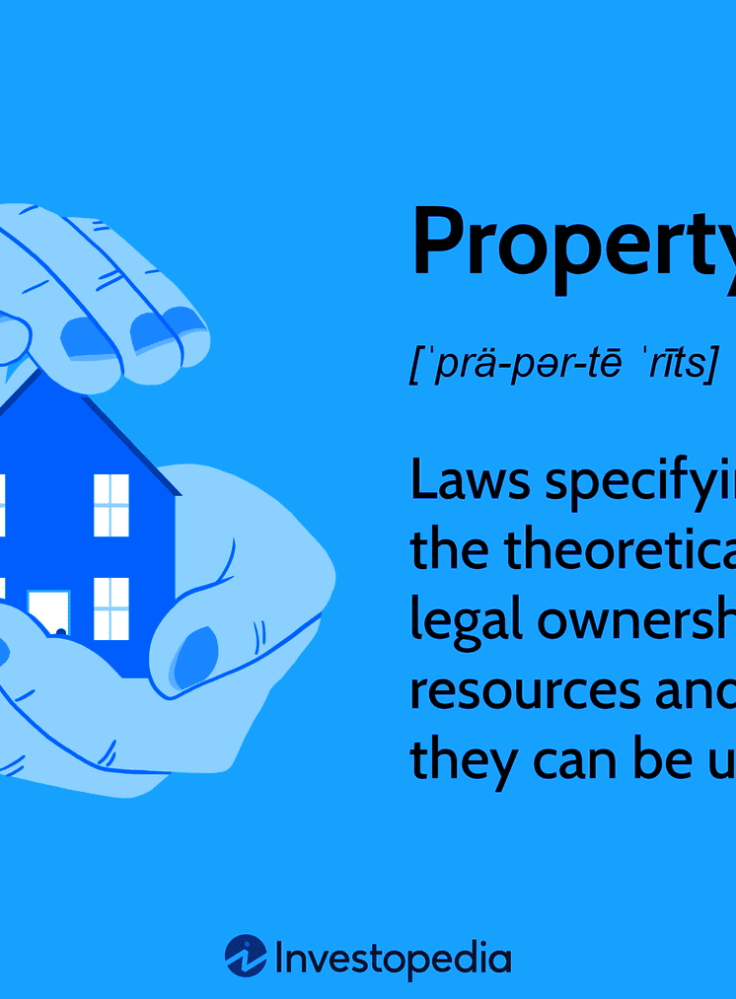New York’s Common Law Property Rights Explained
Common law property rights in New York can be quite complex, but they play a crucial role in how property is owned and transferred. Unlike statutory law, which is created by legislation, common law is based on judicial decisions and legal precedents. Understanding these rights is essential for anyone involved in property transactions or disputes.
Key Concepts of Common Law Property Rights

At the heart of common law property rights are a few key concepts:
- Ownership: This refers to the legal right to possess, use, and transfer property. Ownership can be complete or partial.
- Possession: Possession may not equal ownership, but it gives individuals certain rights, such as the right to exclude others.
- Transferability: This concept pertains to the ability to sell or give away property. Certain conditions may apply based on the type of ownership.
- Exclusions: Property owners have the right to exclude others from their property, which is essential for maintaining privacy and control.
These concepts are fundamental in navigating the complexities of property rights in New York.
Ownership Types and Their Implications

In New York, property ownership can be categorized into several types, each with unique implications:
| Ownership Type | Description | Implications |
|---|---|---|
| Fee Simple | The highest form of property ownership, giving full control over the property. | Owner can sell, lease, or transfer the property without restrictions. |
| Joint Tenancy | Property owned by two or more individuals with equal shares. | Includes the right of survivorship, meaning if one owner dies, the property automatically goes to the surviving owner(s). |
| Tenant in Common | Property owned by two or more individuals, but with possibly unequal shares. | No right of survivorship; shares can be passed to heirs. |
| Life Estate | Ownership for the duration of a person’s life. | After the person’s death, the property transfers to another designated individual. |
Understanding these ownership types is essential, as they influence property rights, responsibilities, and how property can be transferred in various situations.
Impact of Marriage on Property Rights

Marriage significantly impacts property rights in New York, primarily because it changes how assets are owned and managed. When two people get married, they often combine their resources, and this can create shared property. Understanding how marriage affects property rights can help couples navigate financial decisions and potential disputes.
In New York, there are a few key points to consider regarding marriage and property rights:
- Marital Property: Any property acquired during the marriage is usually considered marital property, regardless of whose name is on the title.
- Separate Property: Property owned before the marriage or received as a gift or inheritance during the marriage generally remains separate property.
- Joint Accounts: Funds in joint bank accounts are often deemed marital property, even if one partner contributed more.
- Debt Responsibility: Both spouses can be held responsible for debts incurred during the marriage, impacting their financial rights.
It’s essential for couples to have open discussions about their assets and debts to avoid confusion later on.
Property Division During Divorce
Divorce can be a challenging time, especially when it comes to dividing property. In New York, the law follows the principle of equitable distribution, which means that marital property is divided fairly, but not necessarily equally. Understanding how property division works can help individuals navigate this difficult process.
Here are the steps involved in property division during a divorce:
- Identifying Marital Property: The first step is identifying what constitutes marital property and separate property.
- Valuing the Property: Once identified, each asset is assigned a value. This may require appraisals for significant items like homes or businesses.
- Negotiating Distribution: Couples can negotiate how to divide assets, considering factors like financial needs and future earning potential.
- Final Agreement: The court will review the proposed division, and if deemed fair, will incorporate it into the final divorce decree.
It’s crucial for individuals to seek legal advice during this process to ensure their rights are protected.
Legal Remedies for Property Disputes
Property disputes can arise in various situations, such as divorce or disagreements over ownership. When conflicts occur, there are legal remedies available to resolve these issues in New York. Understanding these remedies can help individuals take appropriate action.
Some common legal remedies include:
- Mediation: A neutral third party helps the involved parties negotiate a resolution without going to court.
- Arbitration: Similar to mediation, but the arbitrator makes a binding decision on the dispute.
- Litigation: If other methods fail, parties may take the issue to court. A judge will review the evidence and make a legal ruling.
- Partition Action: If co-owners cannot agree on what to do with a property, one party can file for a partition action to force the sale of the property.
Each of these remedies has its pros and cons, and individuals should carefully consider their options and consult with a legal professional to choose the best course of action.
How Common Law Affects Inheritance Rights
Inheritance rights in New York are influenced significantly by common law principles. When someone passes away, their property needs to be distributed according to their wishes, often outlined in a will. However, if there’s no will, common law provides a framework for how assets are inherited. Understanding how this works is essential for ensuring that your wishes are respected after your passing.
Here are some key aspects of how common law affects inheritance rights:
- Intestate Succession: If a person dies without a will, their assets are distributed according to New York’s intestate succession laws. This means property goes to close relatives in a specific order.
- Wills and Testaments: Common law emphasizes the importance of having a valid will. A properly executed will allows individuals to specify how they want their property distributed.
- Elective Share: In New York, a surviving spouse has the right to claim a portion of the deceased spouse’s estate, regardless of the will’s content, ensuring they are not left without support.
- Rights of Children: Children have certain rights under common law, especially if they are not mentioned in a will. They may still be entitled to a share of the estate.
By understanding these inheritance rights, individuals can make informed decisions about their estates, ensuring their loved ones are taken care of.
Frequently Asked Questions
When it comes to common law property rights in New York, people often have many questions. Here are some of the most frequently asked questions and their answers:
- What is common law property? Common law property refers to property rights established through court decisions rather than statutes.
- How is property divided in a divorce? New York follows equitable distribution, meaning marital property is divided fairly, considering various factors.
- What happens if I die without a will? If you die intestate (without a will), your assets will be distributed according to state intestate succession laws.
- Can I change my will? Yes, you can change your will at any time as long as you are of sound mind and follow legal procedures.
- Do I need a lawyer for property disputes? While it’s not mandatory, having a lawyer can help protect your rights and navigate complex legal issues.
If you have more specific questions, it’s always a good idea to consult with a legal expert who can provide tailored advice.
Conclusion on Common Law Property Rights in New York
Understanding common law property rights in New York is essential for anyone dealing with property ownership, marriage, or inheritance. These rights govern how property is owned, transferred, and divided, affecting not only individuals but also families and future generations.
By being aware of the key concepts of common law, the implications of marriage, and the legal remedies available for disputes, individuals can make informed decisions about their assets and rights. Whether you’re drafting a will, getting married, or navigating a divorce, having a solid grasp of these rights will empower you to protect your interests and ensure that your wishes are respected. Remember, seeking professional legal advice can be invaluable in navigating the complexities of property law.


